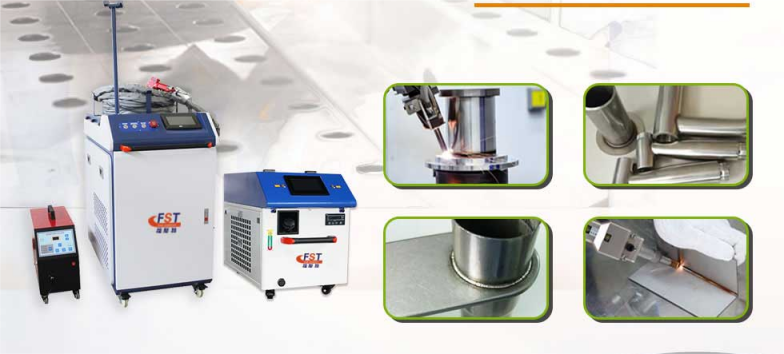Advantages of Fiber Laser Welding Machines Over Traditional Welding:
- High Precision: Fiber laser welding machines offer exceptional precision, allowing for intricate and detailed welds.
- Non-Contact Welding: Fiber lasers perform non-contact welding, reducing the risk of surface damage and distortion, particularly crucial for delicate components.
- Minimal Heat-Affected Zone: Fiber lasers produce a focused and concentrated heat source, minimizing the size of the heat-affected zone, resulting in minimal distortion and high-quality welds.
- Versatility: These machines can weld various materials, offering a wide range of applications across industries.
- Energy Efficiency: Higher-power machines are more energy-efficient, leading to reduced operating costs over time.
- Speed and Productivity: Higher-power machines enable faster welding, increasing overall productivity in manufacturing processes.
- Automation Integration: Fiber laser welding machines can be integrated into automated production lines, offering remote operation and control for enhanced efficiency and consistency.
- Quality Assurance: These machines deliver consistent and repeatable welding results, ensuring high-quality weld joints.
- Environmentally Friendly: The precise and efficient nature of fiber laser welding reduces material waste and the need for additional finishing processes, making it an environmentally friendly choice.
- Reduced Welding Defects: Fiber laser welding minimizes common welding defects such as porosity, undercutting, and spatter.
- No Consumables: Unlike traditional welding methods that may require consumable materials like electrodes or filler metals, fiber laser welding is consumable-free, reducing operational costs.
- Enhanced Control: Fiber laser welding offers real-time control and monitoring of the welding process, improving consistency and quality.
In summary, fiber laser welding machines offer a host of advantages over traditional welding methods, including precision, non-contact welding, reduced heat-affected zones, versatility, energy efficiency, and environmental benefits. These advantages make them a preferred choice in modern manufacturing processes across various industries.
Post time: Sep-18-2023
